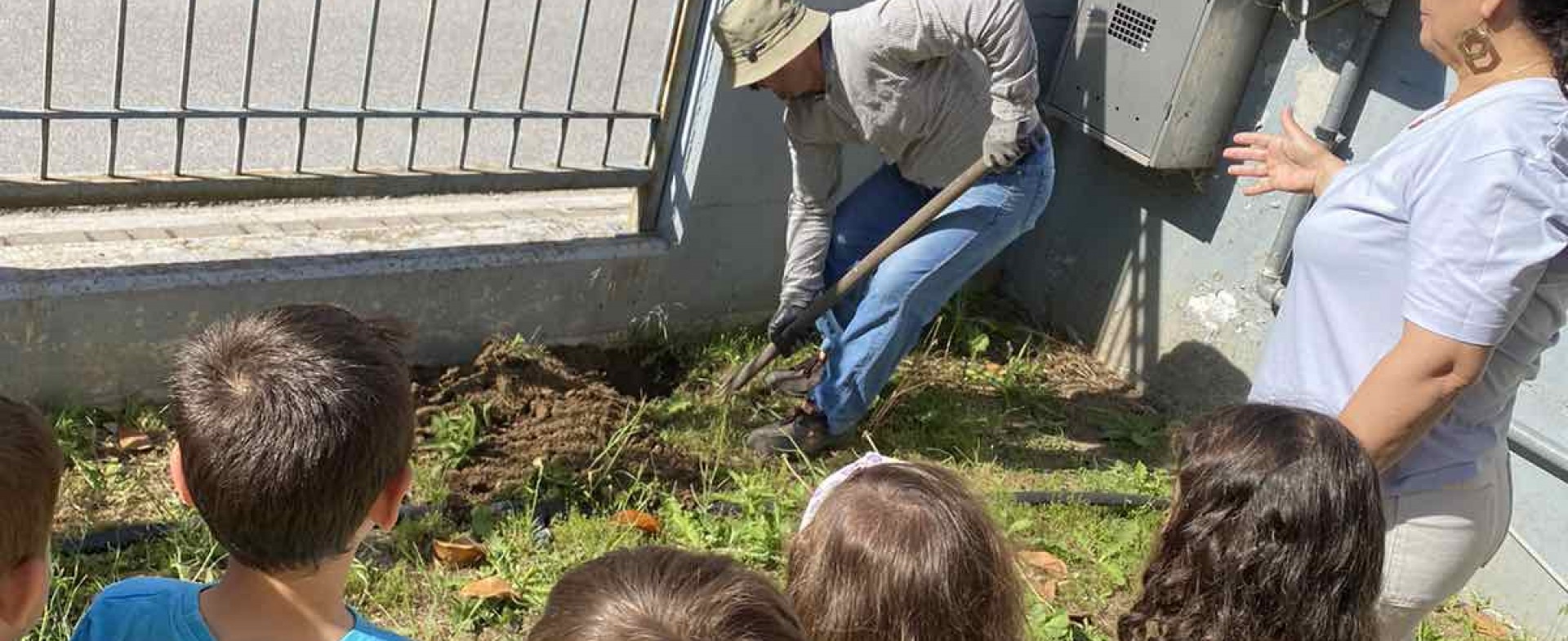
"Green Economy Starts in Kindergarten"
The green economy is an important tool for addressing climate change and preserving the environment.
Introduction
The green economy is an important tool for addressing climate change and preserving the environment. But how can we introduce these principles at the preschool age? At the preschool age, children are in a crucial developmental stage. It is a period where many changes are observed at various developmental levels, such as the physical-motor level and the social development sector. It is also the age of autonomy, where children begin to discover the world around them. Within the framework of the green economy, we can introduce children to concepts such as sustainability, recycling, and the use of environmentally friendly technologies. Through games, activities, and educational programs, children can learn how to contribute to environmental protection and develop sustainable habits from a young age. We should encourage children to think green, discover the world in a sustainable way, and become agents of change for a better tomorrow!
Objectives
(Note: You can continue the action plan by adding specific objectives, activities, expected outcomes, and evaluation methods.)
Action Plan: "Green Economy Starts in Kindergarten" The Importance of the Green Economy The green economy is the greatest weapon against climate change and concerns all of us. Its goal is to achieve sustainable development by protecting the environment and improving our quality of life.
Objectives for the Green Economy Program in Preschool:
• Awareness: Informing children about the importance of environmental protection and sustainable development.
• Creativity: Encouraging creativity through games, artistic activities, and nature exploration.
• Participation: Encouraging children's participation in environmental activities, such as tree planting or environment cleaning.
• Recycling: Educating children about the importance of recycling and waste reduction. The green economy is a significant way to ensure a sustainable future for younger generations.
Expected Outcomes:
• Awareness: Children will understand the importance of environmental protection and sustainable development through games, stories, and activities.
• Creativity: Children will explore nature, create artistic works with recyclable materials, and develop their imagination.
• Participation: Children will take part in activities such as tree planting, environment cleaning, and recycling.
• Recycling: Children will learn about recycling and participate in simple recycling activities. These programs will help children develop environmental awareness and become more responsible citizens of our planet.
Green Actions in Kindergarten: Within the framework of the Green Economy Program in Preschool, various green actions can be implemented in kindergarten.
Some of these include:
• Tree Planting: Young students can plant trees or plants in the kindergarten yard.
• Recycling: Educational activities for recycling materials, such as paper, plastic, and metal.
• Awareness: Educational programs to raise children's awareness about environmental protection.
• Visits to Natural Sites: Organize trips to parks, forests, beaches, or natural monuments for children to explore the environment. Nutrition and Cultivation Teach children to plant vegetables or herbs in small gardens and learn about the value of local and organic food. Energy Awareness Discuss energy conservation, the use of solar panels, and the importance of reducing consumption. These actions will enrich children's education and help them develop an awareness of the environment, sustainability, and become responsible citizens of the future.
Ways to Protect the Environment and Achieve Sustainable Development Contributing to the green economy, we can help protect the environment and achieve sustainable development.
Here are some ways:
• Buying Local Products: Support local businesses by purchasing products from them.
• Using Sustainable Materials: Choose products that are environmentally friendly, such as recyclable materials.
• Energy Conservation: Turn off lights and appliances when not in use.
• Recycling: Separate recyclable materials and participate in recycling programs. With these simple actions, you can contribute to the green economy and protect the environment. Educational Programs There are various educational programs that can be integrated into preschool education to raise children's awareness about the green economy.
Some ideas include:
• Gardens and Planting: Create small gardens at school. Children can plant vegetables, watch them grow, and learn about sustainability.
• Recycling: Introduce children to recycling. Discuss how they can recycle materials such as paper, plastic, and glass.
• Visits to Environmental Centers: Organize trips to environmental centers or natural sites. Children can learn about biodiversity, ecology, and environmental protection.
• Creative Activities: Paint with eco-friendly colors, make crafts from recyclable materials, and enjoy games that promote environmental awareness.
